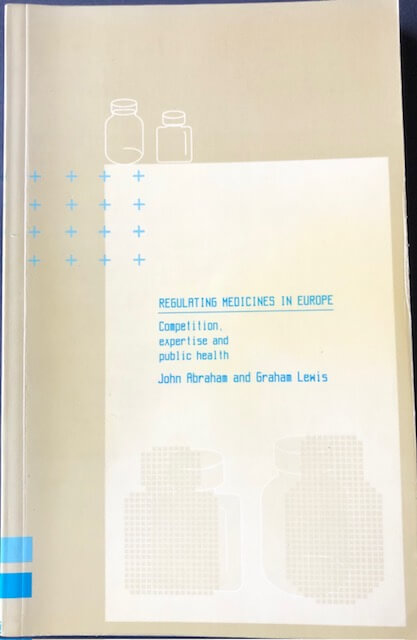
Regulating Medicines in Europe: Competition, Expertise and Public Health (2000)
Author: John Abraham Category: Factual Academic Publisher: Routledge More Details“Regulating Medicines in Europe explains and investigates how medicines are controlled in Europe, especially the EU. Basing their book on penetrating documentary and interview research with the pharmaceutical industry, regulators, and consumer organizations, John Abraham and Graham Lewis provides the first major critical examination of the new Europeanized systems of medicines regulation at both the national and supranational levels. Their analysis documents the historical emergence of supranational EU pharmaceutical regulation and scrutinizes its interplay with the neo-liberal political trajectories of some of the most influential national drug regulatory agencies in Europe, namely the UK, Germany and Sweden. They argue that the drive to produce and approve more drugs more quickly for a single European market dominates other considerations, such as improvements in democratic accountability, the independence of regulators and scientific expertise from commercial interests, and drug safety testing and surveillance. The authors demonstrate that national regulatory agencies now compete in an internal EU market for fees from pharmaceutical companies in a race to approve new drugs. The implications of this competition and European harmonization of risk-benefit assessments for new drug safety standards, industry-regulator relations, and public accountability are carefully scrutinized by the authors, who conclude that European pharmaceutical regulation is now best characterized by neo-liberal corporate bias.”
“In Regulating Medicines in Europe, Abraham and Lewis rivetingly describe the effects of Europeanization on medicines control. The book is the result of five years’ research with dozens of interviews with regulators and members of industry and a meticulous search of the literature. In true Abraham style, it is rich with normally untraceable material, all fully referenced. The book also comes with an unmatched reference list. For completeness, comparisons are made between the UK, Sweden, and Germany. The arguments presented are forceful: the authors conclude that there is now much in current procedures that is undemocratic; that regulation of medicines is biased towards the interests of the pharmaceutical industry and trade over and above the interests of patients and public health; and that compromised safety arrangements are likely to be putting patients at risk. Regulating Medicines in Europe demands answers from regulators and deserves thanks from society. Here is a book that is likely to change thinking.”
British Medical Journal
“This book breaks new ground through interrogating European and global practices associated with the development of new drugs – the book deserves and demands a wide readership”
Professor Andrew Webster, Director of the UK Economic and Social Research Council’s Innovative Health Technologies Research Programme
“We are entering a period when a book like this will be immensely important – it provides a much needed new look at regulating medicines. Commendably calm and nicely structured, the book will also induce a strong stimulus to further research”
Graham Dukes, Emeritus Professor of Drug Policy Studies, University of Groningen